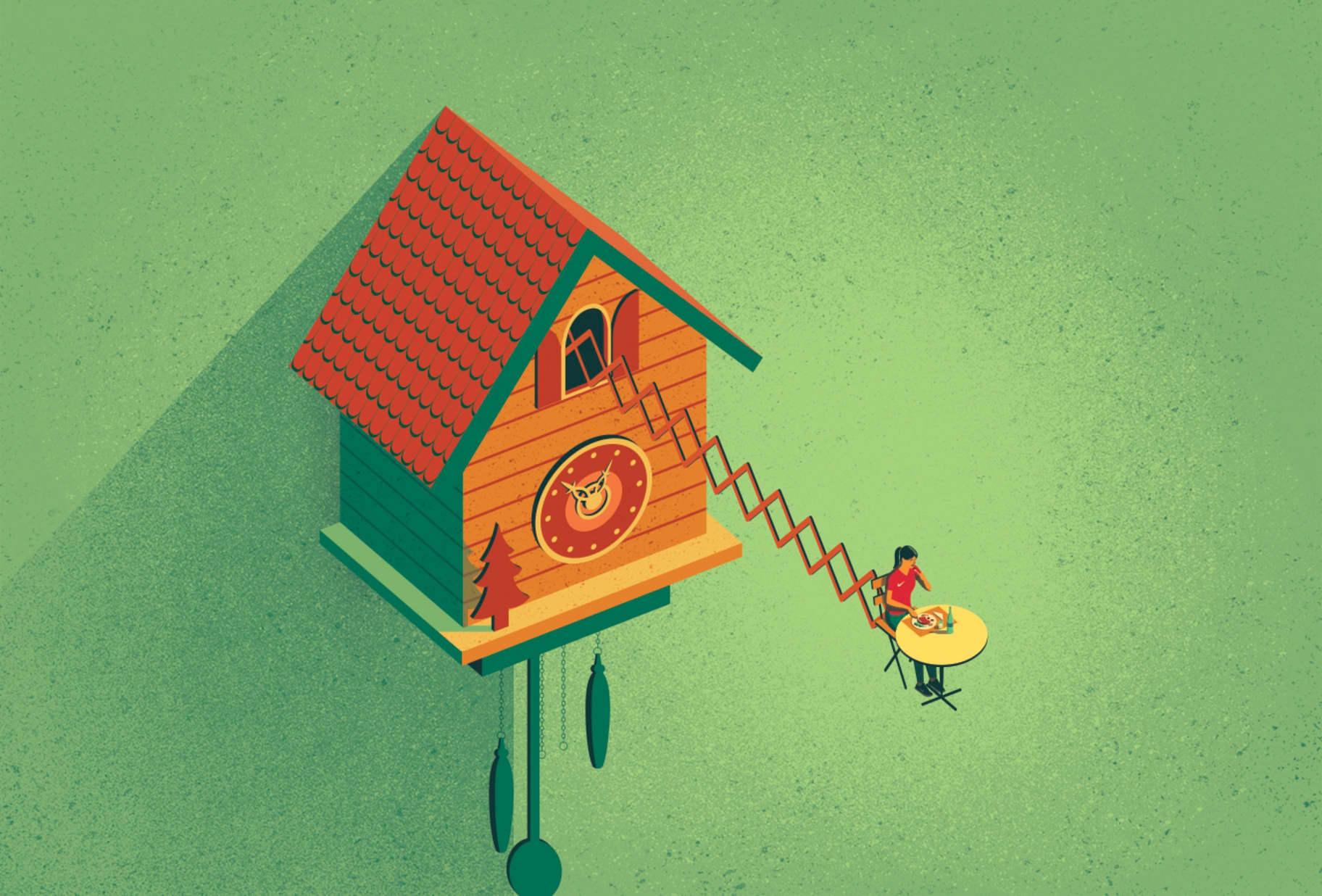Why When You Eat Could Matter More Than What You Eat
Coaching
Experts explain how to time your meals for max feel-good, perform-better rewards.

Does eating pizza at noon do the same to your body as eating pizza at 2am? If you've ever had a few slices after a late night out and woken up feeling bloated and a little sluggish, you know the answer is heck no.
You might assume that a late night (and maybe a drink or three) is to blame for that morning-after feeling. And it often is. But it's not the only factor. Your digestive system is one of the many systems in your body that's controlled by your circadian rhythm, or internal clock, explains Satchin Panda, PhD, a professor at the Salk Institute for Biological Studies, USA. In those wee hours, your body simply isn't in a state to process food. Because of that, your mouth isn't producing enough saliva to kick-start digestion, your intestines are in shutdown mode, and your pancreas isn't ready to deal with all those carbs.
Eating against your clock is like sleeping when you should be awake, or wearing your right contact lens in your left eye. It makes you feel fuzzy. More specifically, when you eat at the "wrong" time of day—you know, having dinner at 10pm because you've worked late, or wolfing down a pre-long run banana with peanut butter at 6am when you rarely eat before 9am. Your clock gets confused and tries to reset, says Panda. After a few days of this—regardless of how healthy you might be eating—our clock may stop being able to effectively regulate and, in a sense, gives up. Inflammation can start to rise and cellular damage might occur, leading to issues such as joint pain and slower muscle recovery, says Panda.
When you eat at the "wrong" time of day, your clock gets confused and tries to reset. After a few days of this—regardless of how healthy you might be eating—your clock may stop being able to effectively regulate and, in a sense, gives up.
Satchin Panda, PhD, professor at the Salk Institute for Biological Studies, USA
On the flip side, restricting your meals and snacks to limited daytime hours within an 8- to 12-hour window can set your body up for success. (Just clear it with your doctor first.) Often called time-restricted feeding or intermittent fasting, this eating plan may decrease levels of systemic inflammation, improving not just your achy knees and muscle bounce-back, but your immunity too, says Panda. Research also suggests that intermittent fasting can improve your blood sugar regulation and fat-burning abilities, likely because you're eating when your body is primed to break down food versus when it's been trained to power down. So more of that lunchtime pizza, for example, gets used for energy rather than being stored overnight.
What's the best way to time your meals? Here's what experts and research suggest:
Breakfast: Wait an hour or two after waking up before eating, and aim to keep this time relatively consistent, says Panda. Why? Because when you first get up, you still have increased levels of the sleep hormone melatonin in your bloodstream, which can interfere with the production of insulin, a hormone your body needs to break down and utilise carbs, he explains. Try to front-load your calories—and any sugar cravings—at breakfast, if you can. Research published in The Journal of Nutrition found that making it your biggest meal of the day might help you maintain a healthy BMI (body mass index), while other research suggests it could also help you sleep better. The thinking: A big breakfast may control cravings throughout the day that affect not only your weight but your sleep hormones too. And you might experience a softer insulin response to a sugary food or drink, be it a glass of OJ or a muffin, than you would if you were to have it at night.
Snacks: Try to keep at least a two-hour gap between meals and snacks, advises Panda. Every time you eat, your pancreas releases some insulin; about 90 minutes later, your insulin levels fall back to baseline. If you eat too frequently, your insulin levels never have a chance to return to normal, which could make you store fat.
Lunch: Eat it when hunger strikes, which may be close to the late afternoon if you had a big breakfast or mid-morning snack. If big breakfasts aren't your thing, you could make lunch your main meal instead. Either way, it should be larger than your dinner, says Panda. The same study found that consuming the highest percentage of your daily calories at lunch saw a similar, though smaller, benefit to doing so at breakfast.
Dinner: Time it so that it's about 10 hours later than your first meal. That window is a little easier to stick with than the popular 8-hours-eating, 16-hours-fasting schedule is, and according to research, still can improve blood pressure, weight and body fat percentage. Just keep dinner on the smaller side, says Panda, so your body has less work to do. If 10 hours becomes easy, you can narrow the window to 8 hours, finishing up by 6pm, if you ate breakfast at 10am.
Of course, fitting your food inside a strict window isn't always doable, or desirable, every single day. Sometimes a late work call, a nap-less child or a birthday celebration gets in the way, and that's OK. Timing your meals just five days a week can lead to benefits, says Panda, though any kind of proactiveness around your eating will put you on a healthier track. The best part is, you already have the clock built in—you just have to learn to tick to it.